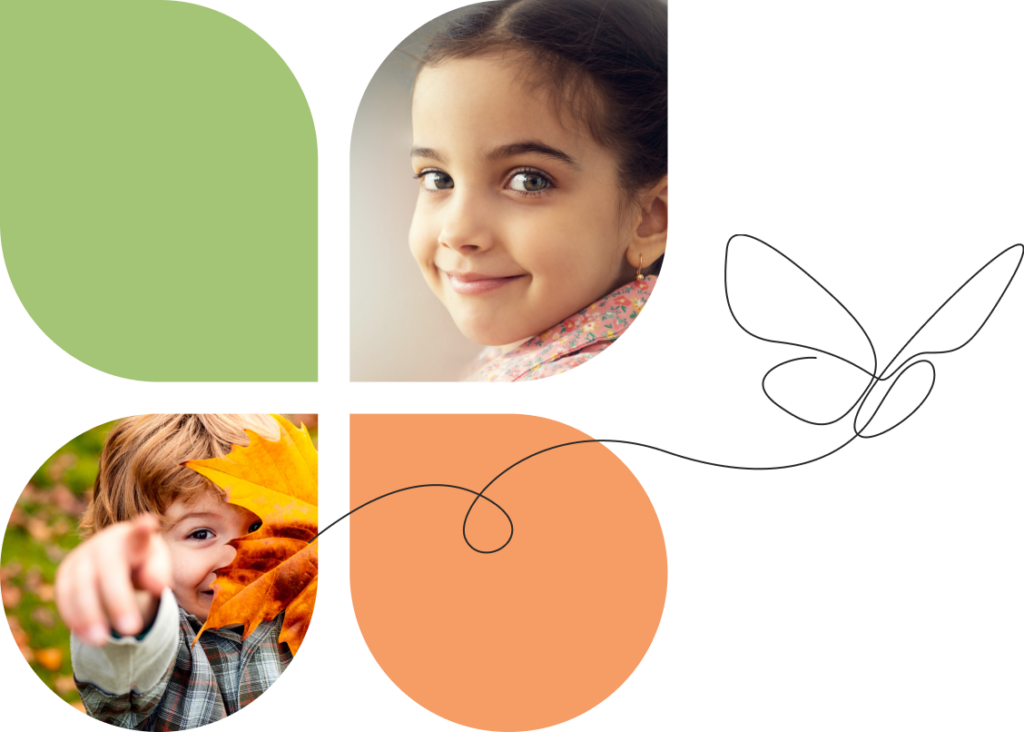Parenting toddlers often feels like navigating a whirlwind—one moment they’re happily stacking blocks, and the next, they’re in full meltdown mode because the “wrong” plate was used for snack time. If this sounds familiar, you’re not alone, and there’s a reason behind it.
In a recent live talk, Mariana Bissonnette, a Montessori expert with years of experience, shared incredible insights into why toddlers crave order and predictability—and how it’s a key part of their development. Mariana is not only a seasoned Montessori educator and coach but also the author of the award-winning book Babies Build Toddlers. Her work is a lifeline for parents navigating the beautiful, sometimes chaotic early years of childhood. Watch the full video in our Childhood Potential Club.
Why Order Matters So Much to Toddlers
Imagine walking into a kitchen that’s neat, familiar, and organized—it makes cooking a breeze, right? Now imagine the same task in a chaotic kitchen with missing utensils and cluttered counters. That frustration? It’s how toddlers feel when their environment lacks order.
Mariana explains that toddlers rely on an organized, predictable world to feel secure. They’re building foundational skills like movement, language, and emotional regulation, and a sense of order helps them make sense of the big, overwhelming world around them. When things are where they expect them to be, toddlers feel confident, capable, and ready to explore.
Toddlers and the Drive for Exploration
Toddlers are naturally curious. They want to test their skills, learn how things work, and figure out their place in the world. Mariana highlighted something called “maximum effort,” a term from Montessori philosophy. This describes the immense energy toddlers pour into repeating tasks and mastering new skills, like carrying a heavy object or stacking the same blocks over and over.
It’s not just about keeping busy—it’s about growth. This drive to refine their abilities thrives in a world that feels predictable and consistent. When their routines are steady, toddlers can focus on exploration and learning without feeling overwhelmed.
The Power of Predictability
As parents, it’s easy to underestimate how much small changes—like moving a favorite toy or using a different-colored cup—can impact a toddler. But Mariana reminds us that these small disruptions can feel monumental to a child still developing their sense of order. Predictability gives them the stability they need to process their experiences and build independence.
By creating a calm, organized environment and honoring your toddler’s need for routine, you’re setting them up for success—not just now but in the years to come.
More Than Just Order: A Bigger Vision
Mariana reminds us that order isn’t just about creating structure for toddlers—it’s a foundation for teaching respect, inclusivity, and connection. In Montessori, the concept of order extends to how we prepare spaces that support all children, ensuring they feel seen, valued, and empowered. By honoring a child’s need for predictability and stability, we’re not only nurturing their development but also fostering empathy and understanding. Order becomes more than a developmental tool—it’s a way to build environments that promote fairness, compassion, and a sense of belonging for every child.
Why This Matters for You and Your Child
Understanding your toddler’s need for order doesn’t mean you have to create a perfectly structured home (life with toddlers is never perfect!). It’s about finding small, intentional ways to offer consistency—like keeping routines predictable, creating a tidy play space, or simply being mindful of the little things that matter so much to your child.
Mariana’s insights remind us that these early years are a time of incredible growth, and as parents and caregivers, we have the opportunity to support that growth in ways that feel simple but have a lasting impact.
So, next time your toddler insists on the “right” plate or lines up their toys in a perfect row, know that they’re not being difficult—they’re building their understanding of the world. And you’re playing a vital role in helping them feel safe, capable, and ready to take it on.
Conclusion
Understanding your toddler’s need for order is more than just a parenting strategy—it’s a way to support their growth, independence, and emotional well-being. By creating a predictable environment and honoring their unique developmental phase, you’re helping your child build a strong foundation for learning, confidence, and resilience.
It doesn’t have to be perfect. Small, consistent efforts—like keeping routines steady or organizing their play area—can make a world of difference. These early years are full of curiosity and discovery, and by embracing your child’s need for order, you’re setting them up for success in ways that will last a lifetime.
About Mariana Bissonnette
Mariana is an experienced and passionate advocate for supporting children and caregivers during life’s most critical years of development. Mariana has over a decade of work in Montessori classrooms, is a former Montessori school leader, and has supported over 2000 families with group and 1:1 support through her program The PEACE Program. She is also the author of the award-winning book, Babies Build Toddlers: A Montessori Guide to Parenting the First 18 Months. Through The PEACE Program, she works with families and educators in service of the liberation of the child from oppressive systems that constrain the child’s ability to develop as they are trying to.




